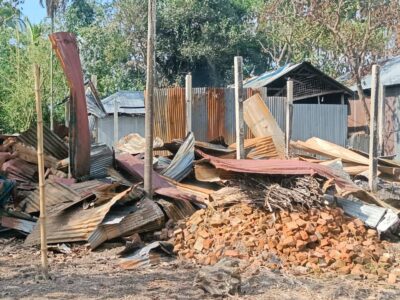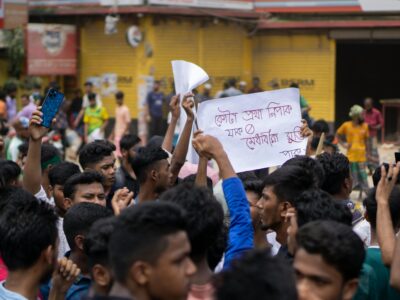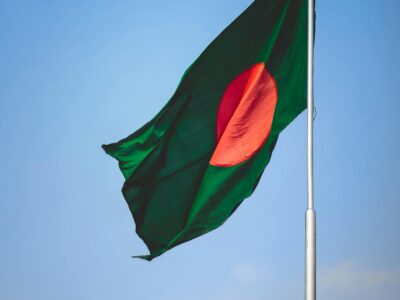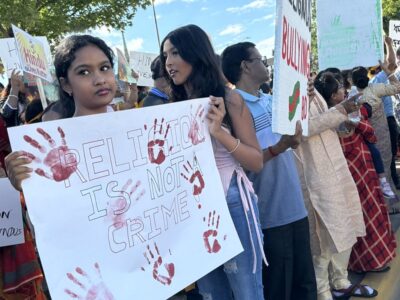Watch the livestream of the conference: https://www.youtube.com/live/NraptRAAwog?si=GJ87yZnTF2lQdaUx
Global Human Rights Defense held a special event on February 19th, 2025, at the European Parliament focusing on the severe human rights violations faced by minorities in Bangladesh regarding the 2024 election turning-point, and then national uprising.
Bangladesh 2025 Minorities situation
GHRD has previously published a report covering those fundamental rights breaches throughout the year 2024, explaining in further depth how the political and systemic organization of society had discriminated against ethnic and religious minorities for decades. January 2024 witnessed large-scale mass violence, censorship, and political dissidents’ repression following the national elections boycott. The upheavals extended until July culminating in hundreds of deaths killed by state actors as students, journalists and activists were protesting the corruption, autocratic government, arbitrarily criminalization, freedom of expression suppression and discriminating practices. The July 2024 protests demonstrated government failure to guarantee civil and political liberties to its citizens as well as biases from the judicial system leading to distrust from the population.
The Prime Minister Sheikh Hasina fled to India on in early august while the interim government of Nobel laureate Muhammad Yunus took office. Despite the political change, violence against indigenous communities in the hills of the Chittagong region and against Christians, Hindus and Buddhists minorities persisted and even amplified. These forms of aggression have a long history and tend to multiply with the resurgence of political disturbances coupled with fragile judicial institutions.
“So, I ask Bangladesh where are your Hindus? Where are your minorities? What have you done to them?” – Himanschu Gulati
There are reports of a deteriorating human rights situation, with widespread fear among the population and numerous incidents of violence against minorities. As the European Union (EU) continues to provide significant financial support to Bangladesh, including €400 million in renewable energy investments and a planned €2 billion increase in funding from the European Investment Bank, it is imperative that these funds are made conditional on concrete improvements in human rights. MEPs from the South Asia delegation, the Norwegian Parliament and academic speakers brought their expertise to the table to discuss the EU’s specific position and raise some issues.
MEP Giusi Princi urged the EU to face the ongoing atrocities in Bangladesh. As a champion of democracy and human rights, the EU should demand that financial aid is linked to measurable human rights improvements. She calls for immediate intervention and strict accountability measures.
Himanschu Gulati, from the Norwegian and Nordic Parliament, said that since the change of regime, attacks on minorities have increased. The terrorization of minority communities needs international attention and response. These laws voted against Hindus and other marginalized groups are unacceptable and totally shameful.
MEP Ioan-Rareş Bogdan stated that Freedom and justice must be non-negotiable principles. The people of Bangladesh, especially its minorities, deserve protection under international law.
“Every person brings its uniqueness to the society. The protection of minorities is not only a legal obligation but also a moral obligation” said the Deputy. Hence, justice must become the rule in Bangladesh as well, and the EU has the moral responsibility to ensure that financial aid provided contributes to democratic progress, not repression.
John Erik Selle, from the Norwegian Parliament, expressed his concern at the current situation in Bangladesh, suggesting that the country must not become a refuge for anyone at the expense of its own people. He also urged a firm commitment against hatred and violence, calling for an end to the atrocities committed in the country. He appealed to the EU to impose sanctions on the Bangladeshi government while these human rights violations continue. He outlined a repetitive pattern of violence, including violations, human trafficking and destruction, linked to jihadist extremism. “Freedom, peace and justice must prevail for all peoples, without distinction”, he asserted.
We had the great honor of speaking with Professor Chandon Sarkar in Dhaka. His firsthand perspective on the human rights violations unfolding in Bangladesh was invaluable. Our discussion highlighted the severity of the crisis and his urgent call for EU intervention. The voices of minorities in Bangladesh are being silenced, their homes and lives destroyed. Immediate action is required to prevent further suffering.
Professor Sarkar exemplifies remarkable strength, resilience, and determination in his fight to protect and uphold the rights of minorities in Bangladesh.
Key Learnings from the Debate
Despite broad consensus on the need for urgent intervention, there were notable challenges in reaching a clear strategy for enforcing sanctions. Some stakeholders expressed concerns over diplomatic and economic consequences, while others emphasized the need for immediate action.
Despite broad consensus on the need for urgent intervention, there were notable challenges in reaching a clear strategy for enforcing sanctions. Some stakeholders expressed concerns over diplomatic and economic consequences, while others emphasized the need for immediate action.
While sanctions remain a complex issue, today’s debate reaffirmed the necessity of establishing monitoring bodies to ensure oversight and accountability in Bangladesh. These bodies should provide transparent reporting mechanisms and work in close collaboration with international human rights organizations to track progress on minority protections.
The EU must leverage its financial influence to drive meaningful change, ensuring that every form of support is tied to verifiable human rights improvements.
The actions that EU can take:
The EU cannot continue providing billions of euros to Bangladesh without demanding accountability. GHRD urges the EU Parliament to:
- Adopt a resolution condemning the violence, human rights violations, and democratic backsliding in Bangladesh, as these contradict the fundamental values the EU upholds.
GHRD also calls on the European Commission and Council of the EU to:
- Review and condition financial aid on measurable human rights improvements.
- Consider imposing sanctions (restrictive measures) to promote democracy, human rights and international law.
The international community can no longer turn a blind eye. The time for action is now.







Comments